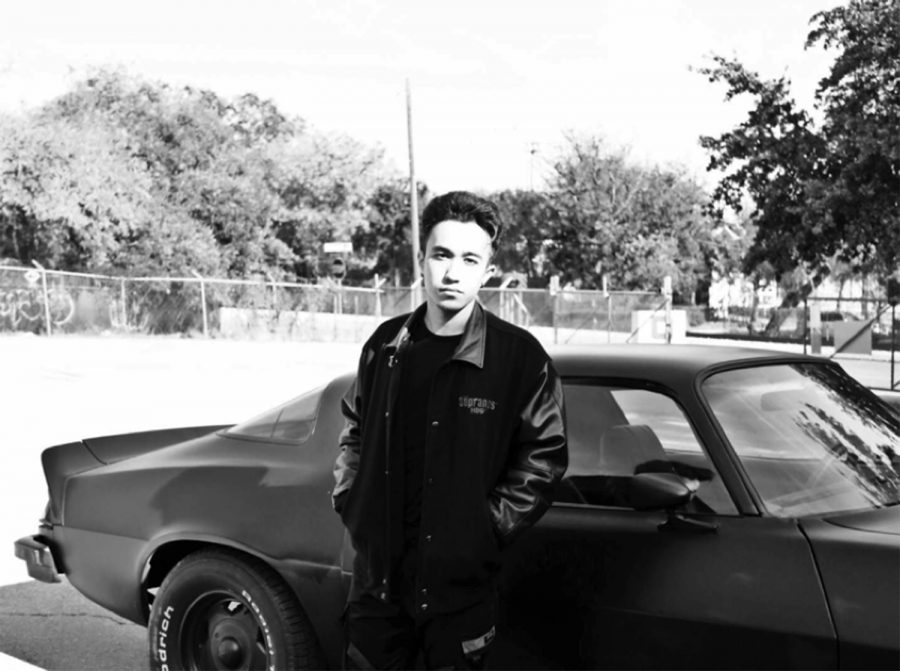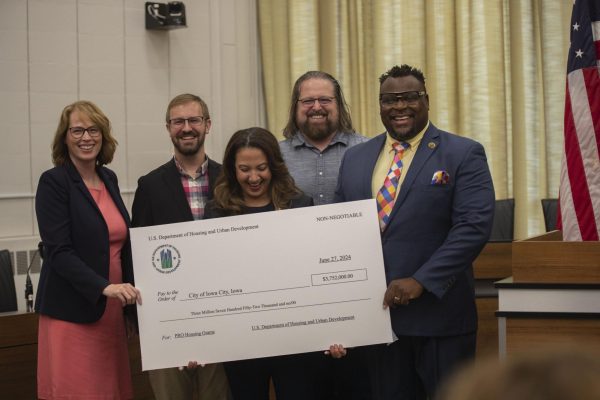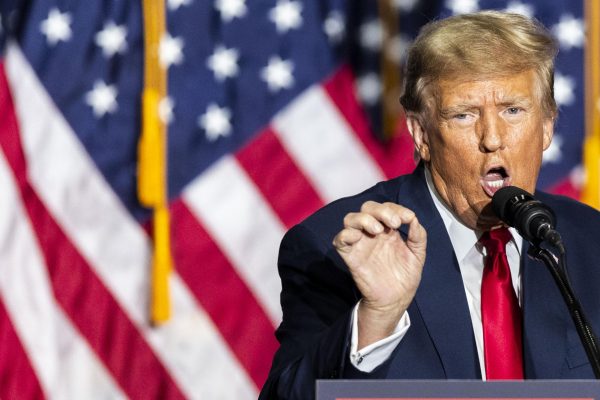Rapper Eink faces challenges in achieving stardom
Inspired by stereotype-breaking rappers, a UI international student is finding his place in the hip-hop world.
April 15, 2019
During the weekdays, Eink is an ordinary University of Iowa student who runs from class to class, but on the weekends, he lights up the stage with hundreds of people in the audience.
Eink, whose real name is Imran Kaiser, is an ambitious 21-year-old Chinese rapper from Ürümqi in northwestern China who has stirred up a zeal for Chinese rap at the UI.
The UI junior said he has faced challenges in living out his passion, from struggling with cultural differences in making music to dealing with his parents’ doubt about his career path.
From the beginning of his artistic career, Eink has constantly faced the decision of how to communicate his story. He discovered an interest in rap as a high-school freshman while he was in China. Eminem, a white rapper who broke the stereotype of African Americans’ dominant position in hip-hop, inspired the budding artist.
Eink started tracking everything about Eminem’s music and learning his songs. In school, he got to know peers who had experience rapping with a crew.
In Eink’s sophomore year, he accepted an invitation from a local music company, Xinshengzhizao, to join its project of a three-person rap crew, August.
The group intended to rap in different languages: English, Mandarin, and the Uygur language (the major language of the ethnic minority). However, the group members eventually found that their choices of language didn’t cater to the music market; they discovered that most people prefer to listen to music in their own language or in a familiar language.
After he graduated from high school, his love for American culture, especially hip-hop music, prompted Eink to attend college in the U.S.
Eink once hesitated to pursue his dream of becoming a professional rapper because of his family. He started out as a business major, expecting to enjoy the classes and explore an unknown area.
However, he felt conflicted after not enjoying the first week of classes. He loved music, but his parents, who are both doctors, worried if he could feed himself in the future as an artist. They wished he could live a steady life.
By the second week, Eink decided to change his major to global-public health. Eink said it’s completely different from what he wants to do.
“… I don’t want to upset my parents,” he said. “They don’t want me to be unable to afford meals as a poor artist. But I’ll still try to use my music to prove I can feed myself.”
Eink did not start performing at the UI until last fall, when he saw a music competition on campus held by the Chinese Students and Scholars Association. He gave it a shot and finished in first place.
His outstanding performance in the competition resulted in an invitation to join the Chinese Music Club. The next month, the Chinese Students and Scholars Association took the top three performers, including Eink, to the University of Wisconsin-Madison for a bigger music competition with singers from five other universities.
Eink has received invaluable guidance from his two mentors, LIL-EM and AIR, who became big hits from the show “Rap of China.”
LIL-EM is the brother of one of the members of Eink’s début rap crew, August. He offered the group his personal music studio in Ürümqi, saving the young artists a lot of money. AIR, who occasionally performed at the same events, also provided Eink a lot of personal insight.
“A rapper should not betray their original motivation of loving rap,” Eink recalls being told. “Some people might luckily become known, but it won’t last long.”
Eink said AIR also taught him to jot inspiration down whenever it occurs, because the only way to compare a rapper’s ability to others is how much work the rapper has collected. Advice from these rappers has long resonated with Eink, helping him create 14 pieces of work so far.
Although Eink has gained recognition in schools and university organizations, the reality of being a superstar is still far away, in both China and the U.S.
In China, hip-hop is strictly censored. Any songs containing sensitive words or drug references are not allowed to be published. The government may even block problematic artists from working in the industry, banning “low-taste content,” which includes hip-hop culture and musicians, celebrities, actors, and other performers with tattoos, or those whose lifestyle is considered problematic.
Despite the restrictions, he tries to write more songs in his NetEase Cloud Music, a popular music platform in China, and he continues to seek to build a bridge that connects Asian and American hip-hop culture.
But the challenges hardly faze Eink as he continues to chart a path at his own pace: “I hope to earn my own place in the Chinese rap industry.”




















